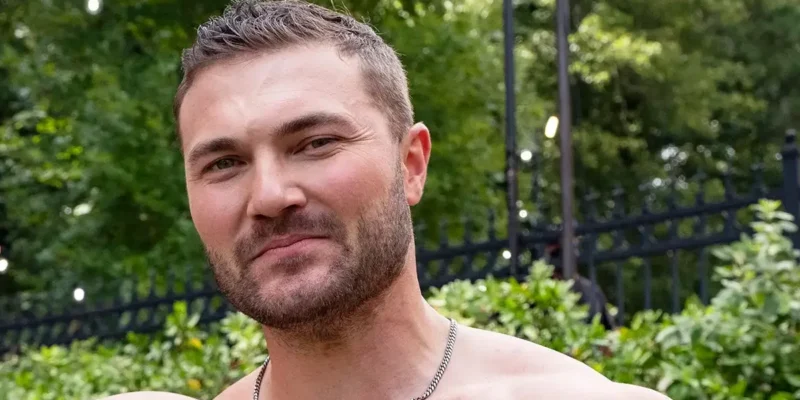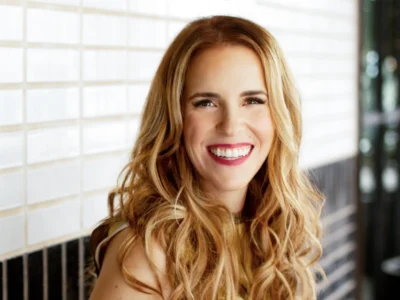
Steve McBee Net Worth stands at $10 million in 2025, built through hard work and smart business moves. His wealth comes from a massive 40,000-acre farming operation, reality TV fame, and several side businesses. This Missouri entrepreneur went from modest beginnings to becoming a household name through his show “The McBee Dynasty: Real American Cowboys.”
Let’s explore how this cattle rancher built his agricultural wealth and what makes up his economic portfolio today.
Steve McBee Net Worth in 2025
Steve McBee has amassed a $10 million net worth as of 2025. This wealth stems primarily from McBee Farm & Cattle Co., his flagship business spanning 40,000 acres in Missouri. The farm manages thousands of cattle and produces crops with a focus on sustainable practices. His reality TV show has boosted his visibility and opened new income streams through sponsorships and merchandise sales.
Financial experts track his asset portfolio growth from earlier estimates of $5-10 million in 2024. His business empire includes several profitable ventures beyond farming. McBee leverages his rural entrepreneurship skills across multiple industries, creating a stable financial standing despite the risks of agricultural markets.
McBee started his first business at age 22 and grew it without outside investment. He now owns multiple properties, equipment, and brand rights worth millions. His cattle herds and farm equipment make up a large portion of his monetary assets, while his TV contracts add significant value to his overall wealth.
His business diversification protects him from market fluctuations and weather risks common in farming. McBee spreads risk across different ventures, from direct agricultural production to retail and entertainment. This strategy has paid off, helping him build wealth even during challenging times for American farmers.
Revenue Streams
McBee Farm & Cattle Company forms the backbone of Steve McBee’s wealth. Founded in 1998, this massive operation produces beef and crops on 40,000 acres. The farm emphasizes quality and sustainability, allowing McBee to charge premium prices for his agricultural products. His cattle empire valuation continues to rise as demand for grass-fed beef increases.
His business acumen led him to create four successful offshoots. Apex Protein Snacks turns farm products into high-protein snacks. McBee Meat Company sells premium cuts directly to consumers. Coffee N Carwash’s revenue comes from a unique business combining two everyday services. McBee Custom Homes (MCH) builds houses, adding construction to his business portfolio.
“The McBee Dynasty: Real American Cowboys” premiered in 2024 on Peacock and USA Network, creating a reality TV empire. The show follows the family’s business and personal lives against a backdrop of high-stakes farming. This media venture generates income through Peacock TV royalties and sponsorship deals with agricultural and lifestyle brands.
Agritourism brings visitors to experience farm life firsthand. McBee offers hunting tour sales, guided farm visits, and educational workshops. These activities generate income while building brand awareness. He also sells branded clothing and products related to the show and farm, creating another revenue stream through merchandise sales.
His helicopter allows him to survey his vast property efficiently. McBee uses this tool for land management, giving him an advantage in monitoring crops and cattle. This investment, while expensive to maintain, improves farm productivity and adds to his asset value.
From “Dirt Poor” to Millionaire
Born March 7, 1972, in Independence, Missouri, Steve McBee grew up in a working-class family. He often describes his childhood as “dirt poor” and credits his father’s work ethic as a major influence. These humble beginnings shaped his approach to business and life, instilling values of hard work and resilience that would later fuel his success.
McBee launched his first business at age 22 with limited resources. He gradually acquired small parcels of land and slowly built his farming operation without venture capital or private equity. Each success allowed him to expand further, reinvesting profits into more land and better equipment. His land acquisition strategy focused on properties with good soil and water access.
Risk-taking played a key role in McBee’s rise. He used debt leveraging to fund expansion, often putting personal guarantees on loans. This approach carried significant bankruptcy risks but allowed faster growth than waiting to save cash for purchases. McBee carefully managed these financial risks through strategic planning and diverse income sources.
His blue-collar success story resonates with many Americans. McBee built his empire through physical labor and business smarts rather than inheritance or connections. This narrative of self-made millionaire status makes him relatable to viewers of his show and customers of his products, adding value to his brand.
McBee credits his ex-father-in-law’s business advice as crucial to his early success. This mentorship helped him avoid common pitfalls and make smarter decisions about growth. The combination of hard work, calculated risks, and good counsel transformed McBee from a small-scale farmer to the head of a major agricultural business.
The McBee Dynasty
“The McBee Dynasty: Real American Cowboys” showcases the family managing their vast farm and related businesses. The show highlights the challenges of modern farming, family dynamics, and the high-stakes decisions required to run a multimillion-dollar agricultural operation. Critics and fans alike call it the “Yellowstone of reality TV” for its authentic portrayal of rural American entrepreneurship.
The TV show dramatically increased McBee’s visibility nationwide. This exposure translated into higher traffic for farm tours, more wholesale customers for meat products, and greater brand recognition. The media platform allows McBee to showcase his products to millions of potential customers, effectively serving as free advertising for his businesses.
McBee’s authentic approach on camera resonates with viewers. He openly discusses financial struggles, family conflicts, and business challenges rather than presenting a polished facade. This transparency builds trust with his audience and strengthens customer loyalty to his brand. Fans feel connected to the real person behind the business empire.
Sponsorship deals emerged as a lucrative revenue stream after the show’s success. Companies eager to reach McBee’s rural and suburban audience pay for product placements and endorsements. These partnerships favor agricultural products, outdoor equipment, and American-made goods that align with McBee’s brand and values.
Beyond immediate earnings, the show secured McBee’s legacy. The McBee name now carries weight beyond Missouri, creating opportunities for his sons to expand the business into new markets. This brand equity valuation continues to grow with each season of the show, adding intangible but valuable assets to Steve McBee Net Worth.
Financial Risks and Legal Challenges
McBee pleaded guilty to crop insurance fraud in 2024, a serious blow to his reputation and finances. The case involved misrepresenting crop yields to collect insurance payments. This legal entanglement led to federal restitution payments and ongoing USDA compliance costs. The case brought IRS scrutiny to other aspects of his business operations.
Ongoing USDA investigations continue to examine his farming practices. These regulatory audits focus on organic certification claims and land use reporting. McBee must maintain detailed records and face regular inspections as part of the settlement agreement. This oversight adds administrative burden and expense to his farming operation.
A contract dispute with seed supplier Beck’s Superior Hybrids Inc. resulted in a lawsuit. The case centers on payment terms and product quality claims. Legal fees and potential damages pose financial risks to McBee’s businesses. Such contractual disputes highlight the complex relationships in modern agricultural supply chains.
McBee’s business growth relied heavily on debt financing. He leveraged existing assets to secure loans for expansion, creating potential insolvency risks during market downturns. His debt management strategy involves maintaining multiple revenue streams to ensure loan payments even when farm income fluctuates due to weather or market conditions.
Post-audit penalties and restrictions limit some business activities. McBee faces enhanced reporting requirements and limitations on participation in certain federal agricultural programs. These constraints affect cash flow and operational flexibility. His response includes strengthening compliance protocols and diversifying income to reduce dependence on government-linked programs.
Family Dynamics
The four McBee sons—Steven Jr., Cole, Jesse, and Brayden—play critical roles in the family business. Each specializes in different aspects of the operation: Steven Jr. handles cattle management, Cole oversees crop production, Jesse manages marketing and media relations, while Brayden focuses on the newer ventures like Apex Protein Snacks. This division of responsibilities allows the business to benefit from each son’s strengths.
After 28 years of marriage, Steve’s divorce from Kristi McBee created complex financial challenges. The post-divorce financial split required restructuring business ownership and asset distribution. Despite these personal changes, both parties maintained connections to the business, with Kristi retaining ownership stakes in some ventures while relinquishing others.
Family trust structures protect the business from potential disputes. McBee established legal frameworks to ensure smooth succession planning and clear ownership rights. These arrangements define inheritance paths and decision-making authority. Such planning helps prevent common pitfalls that often destroy family businesses during generational transitions.
The reality show highlights both cooperation and conflict within the family. Cameras capture disagreements over business strategy, investment priorities, and work styles. These tensions create compelling television but also reflect genuine challenges in family business dynamics. Viewers watch as the McBees navigate professional relationships alongside personal ones.
McBee’s relationship with CFO Galyna adds another layer to the business structure. Their romantic partnership influences corporate governance and long-term planning. This relationship blurs professional and personal boundaries, creating both strengths and vulnerabilities for the business. The show documents how they balance these complex roles.
Agritourism and Future Prospects
Agritourism represents a growing segment of McBee’s business model. Farm tours allow visitors to experience working agricultural operations firsthand. Hunting excursions utilize land resources during off-seasons. Educational workshops teach traditional farming skills while generating income. These activities diversify revenue while building consumer connections to the McBee brand.
Organic farming profits increase as McBee shifts more acreage to certified organic production. This transition requires significant investment but commands premium prices. Organic certification fees and compliance costs initially reduce profit margins, but long-term benefits include soil health improvements and market differentiation. McBee views organic practices as both environmentally and financially sustainable.
Venture capital deals may fund future expansion. Industry insiders report that McBee seeks $100 million in outside investment to scale existing businesses. This potential capital infusion would fund new processing facilities and distribution networks. Such growth could multiply Steve McBee Net Worth but would also mean sharing control with investors for the first time.
Grass-fed beef market growth aligns perfectly with McBee’s production methods. Consumer demand for naturally raised meat continues to rise, driving higher prices for McBee’s cattle. His early adoption of grass-fed protocols now positions the company as an established player in this premium segment. Marketing leverages both the health benefits and the environmental advantages of grass-fed production.
Drought risk mitigation strategies protect McBee’s farming operations. Investments in irrigation infrastructure and water rights reduce weather-related vulnerabilities. Crop diversification spreads risk across different plant varieties with varying moisture needs. These approaches represent significant capital expenditure but help secure consistent production despite increasingly unpredictable climate patterns.
Steve McBee’s journey from humble beginnings to a $10 million net worth showcases American entrepreneurship at work. His combination of traditional farming, modern business practices, and media savvy created a diverse empire spanning agriculture, retail, construction, and entertainment. By embracing both risk and innovation, McBee transformed challenges into opportunities for growth.
His story serves as both an inspiration and a cautionary tale. The legal troubles remind us that cutting corners carries consequences, even for successful businesses. Yet his resilience demonstrates how setbacks can become stepping stones to greater success when faced with accountability and adaptation. The McBee legacy continues to evolve through his sons and the brand he built.
Want more insights into the fortunes of America’s most intriguing entrepreneurs? Stay tuned to thriveverge.co.uk for the latest updates and success stories!





